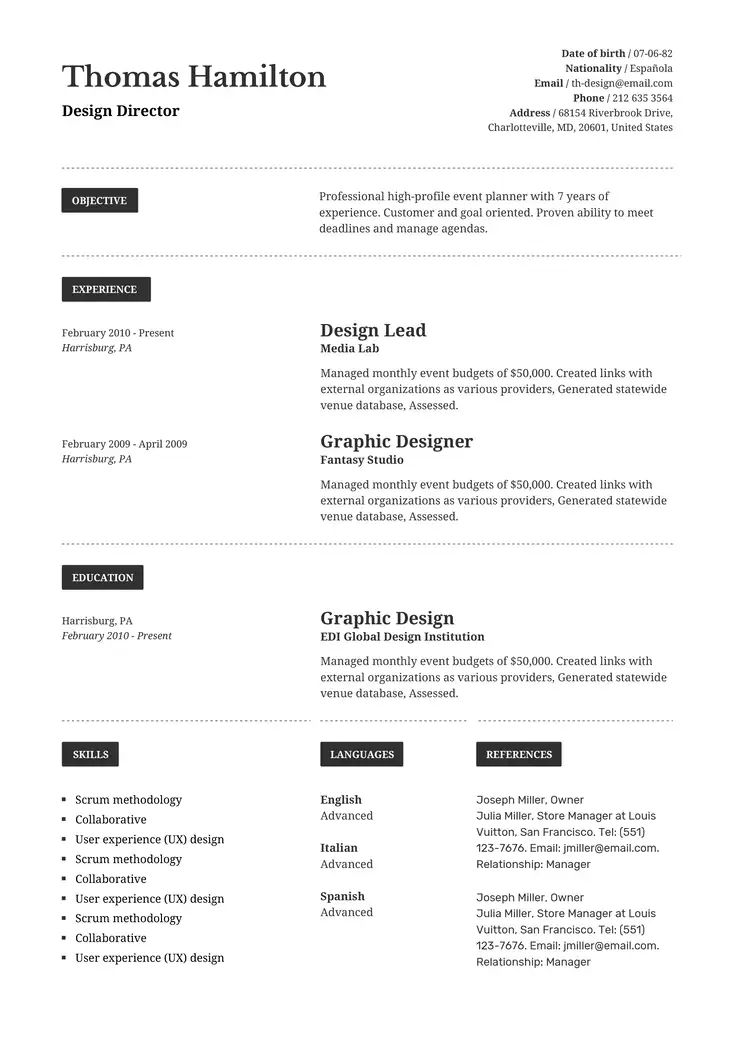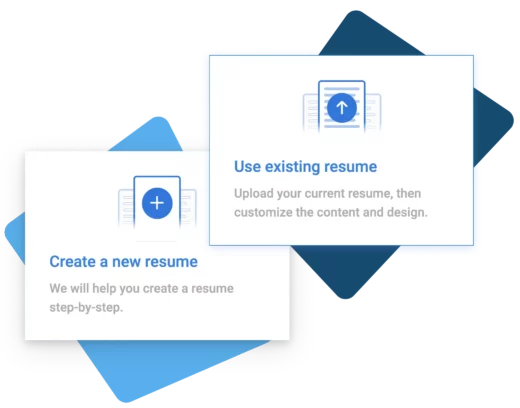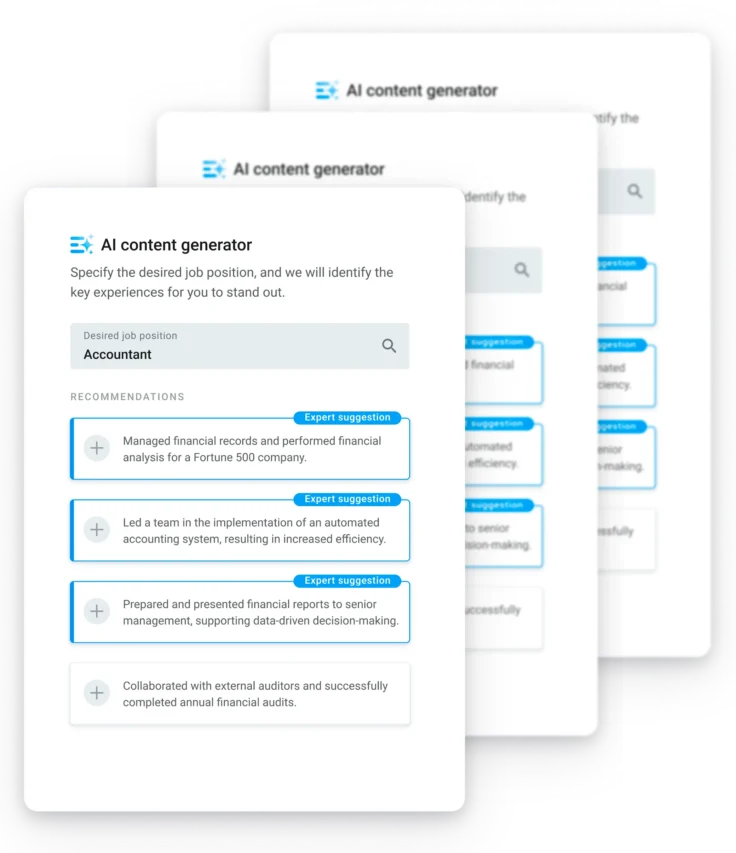How To List Education on a Resume (With Examples)
Not sure what to include, where to place it, or whether to add GPA and coursework? Use this guide to including your education clearly on your resume. Make sure it supports your application, instead of distracting from it.

The education section on a resume can sometimes be the shortest part but is still a vital addition and required by nearly all employers. Along with work experience section and skills, the education section gives employers a clear snapshot of your qualifications.
Failure to adapt your education segment to the position can be costly. In 18% of cases, employers will just throw out your file without any further thought if it doesn’t match their needs.
The following guide will help you complete the education section on your resume with the relevant information, so a potential employer can see your academic interests and areas of knowledge.
Experience or Education: What to put first
Depending on your personal situation, you may want to list first your education section or the work experience part on your resume. It could also depend on the position you’re interested in, or the skills you have gained from different roles in your professional and academic career.
- If you are a recent graduate or still studying, your academic achievements often carry more weight. In this case, it usually makes sense to place your education section before work experience.
- If you have several years of work experience, it’s usually better to highlight this, even when changing career. This is an opportunity for you to show your most recent and transferable skills.
For those jobseekers who are unsure of which section should be highlighted and therefore come first, it is possible that using an online resume creator or resume template could help them to build a suitable resume for their ideal job.
Also, it is possible that choosing a resume format will help you decide on which section should have more precedence in your resume.

Use AI To Build a New Resume from Scratch
Ready to create a resume with perfect education, experience and skills sections? Generate a complete resume with AI by answering a few simple questions and choosing an ATS-friendly template.
List your education on your resume
When it comes to writing the education section for your resume it’s important that you maintain a certain structure in order for it to be easily found by hiring managers.
Similarly to the work experience section, you should always write your academic achievements, diplomas and degrees in reverse chronological order, beginning with the most recent and going backwards, i.e. naming a Masters degree before the Bachelors.
If you attended college and obtained a BA or BSc, it is not advisable to include your previous education or high school degree information. The ACCU claims 95% of hiring managers will giving hiring preference to your college degree. Therefore it’s best to focus just on this headline academic achievement.
In the case that you attended college and did not finish a degree program, you can indicate the amount of credits that you finished.
Within the resume education section, you should always list the course name, institution where you completed the degree program or training and the type such as:
BA English Literature, College of William and Mary, VA
It is not obligatory to include the graduation date or your grade.
Upgrade Your Resume with AI-Powered Suggestions
Already have a resume? Upload it and instantly improve it with AI. Strengthen your experience and education sections, optimize keywords for ATS, and refresh the layout in seconds, without starting over.
Simply enter your profession in the search bar and choose from AI-recommended results.
Powered by ChatGPT, our builder provides instant, natural language suggestions tailored to the job you’re applying for.

Tips for writing your education in your resume
The following expert tips are very practical for jobseekers learning how to write an education section for a resume. Read them carefully and get the most out of them.
- For each entry in the education section of your resume, it is only advisable to include your GPA if it is superior to 3.0.
- You can include the modules studied, projects and coursework completed and any thesis topics you produced throughout each course, describing any relevant and important factors.
- It is especially important to mention any awards, honors or scholarships you may have been granted.
- If you are writing an student resume you may also find it beneficial to include societies or clubs of which you were a member, especially if you held a position of responsibility in any association where you learnt skills which can be transferred to the workplace. This can also apply to entry-level resume candidates and for recent graduate resumes.
- As a general rule the education section on a resume can be longer for jobseekers with little to no professional experience whereas it will only include the basic information for candidates with professional resumes for example, as they will be more focused on other areas.
- Amplifying your education section on your resume can have a positive effect by providing evidence that the candidate is achievement or goal-oriented.
- Remember to include any educational or extracurricular activities that could prove you are equipped to deal with the pressures of a working environment.
Education section example
Below is a quick sample of what the education section of your resume should look like. You can use it as a guide when writing your resume:
Master of Science in Data Analytics
University of Illinois Chicago, Chicago, IL
Graduated: May 2024
Relevant coursework: Applied Statistics, Data Visualization, Machine Learning Fundamentals
Capstone project: Built a predictive model to analyze customer churn using Python and SQL
Bachelor of Science in Business Administration
University of Illinois at Urbana–Champaign, Urbana, IL
Graduated: May 2022
Relevant coursework: Financial Accounting, Marketing Strategy, Operations Management
Honors: Dean’s List (2020–2022)
💡Tip
If your career has taken a different path from your degree subject, organize your education section by relevance of courses and training.
Remember that you must always tailor your resume for your audience, employing keywords taken from the job description which can be included in either your degree program or training courses or in individual project descriptions.
If you’re still unsure of how to write the education section for a resume or you need a little more help putting it together or inspiration for what to include in a resume education section, you can try using an online resume maker which will offer practical tips and examples for completing your resume.
ResumeCoach’s AI resume builder, provides online guidance for jobseekers to create their resume with advice from career experts and real-life practical examples.
Not Sure How To Make Your Education Stand Out?
Use our AI Summary, Skills, and Cover Letter generators to turn your studies into job-relevant strengths recruiters and ATS systems recognize.

